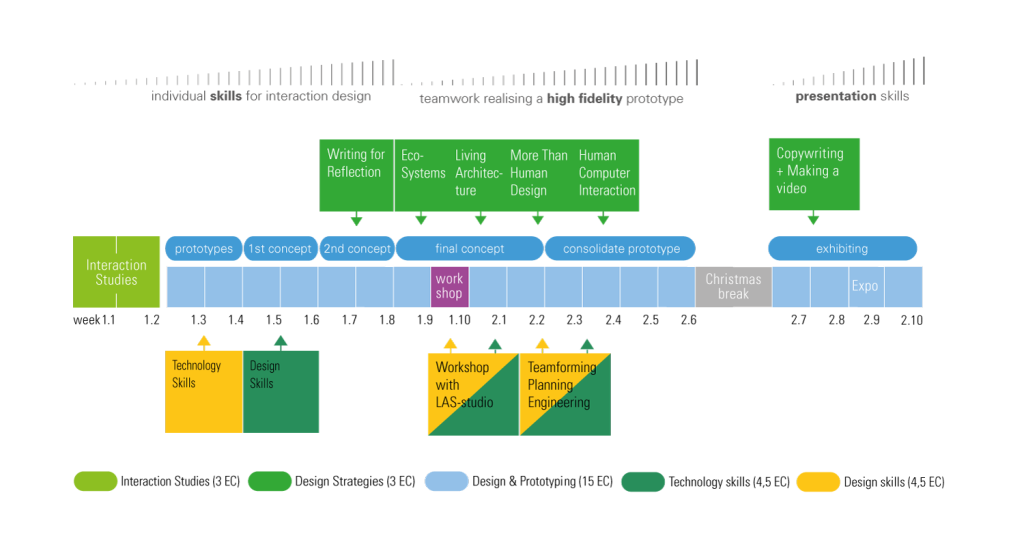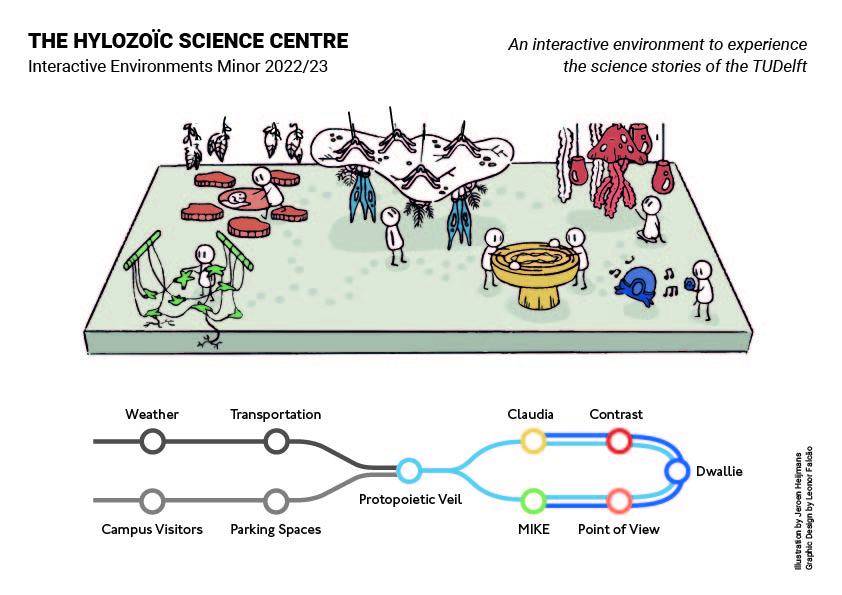
In the 2022-2023 edition of the Interactive Environments minor the main design course was centred around exploring a design brief issued by the TUDelft Science Centre.
The Delft University of Technology finds itself among the global forerunners in research on digital technologies and their applications. The TU Delft Science Centre is part of the TU Delft dedicated to sharing the university’s research with the general public, as well as engaging the general public in related critical discussions, explorations, and development of new ideas. In the coming years, the Science Centre aspires to develop a platform for experiencing and experimenting with complex ecosystems of autonomously operating, interactive objects, and for finding ways for these systems to symbiotically coexist with people and to positively contribute to the social and natural fabric of the world around. The platform will be developed in collaboration with Philip Beesley, a Canadian architect, artist and technologist, who for the past two decades has been creating experimental installations exploring building-scale artificial ecosystems.
The assignment of this edition of the minor is to design, prototype, test and install at the Science Centre a part of an artificial ecosystem derived from Philip Beesley’s design principles. It should consist of at least several autonomously operating devices, interacting with each other, and engaging the Science Centre visitors. Your installation should fit into one of the designated locations at the Science Centre. Through interactions with people and other installations at the Science Centre your “artificial organisms” should make it possible to experience various facets of the TU Delft’s knowledge. At the same time, your “artificial organisms” should trigger people and each other to maintain, adapt, enhance, grow and create new parts of the artificial ecosystem that could evolve over time. The artificial ecosystem, as a whole and as its individual parts, should operate ethically, pose no harm to others (living beings and things), and contribute to the flourishing of the world around it.
TUDelft Interactive Environments Minor Students: Ada Fabrykiewicz, Benjamin van Schaik, Diana Lore De la Vega Valdés, Eli Hommes, François Andrés, Ha Yeun Kim, Ian Lin, Izzy Mico, Jafet Koeckhoven, Jeroen Heijmans, Joris Mooij, Julia Kleinwächter, Laura Arango Mejia, Laura Martinez Quesada, Leonor Falcão, Linjing Wu, Nika Umnov, Doruk Kırbeyi, Olaf Kamperman, Pablo Yániz González, Rita J. Gorriz Salanova, Sasha Kiselev, Sophie Timmerman, Stijn Gruben, Tasmin Whittle, Tieme van Wijnen, Tijmen Tonino.
TUDelft Interactive Environments Minor Staff: Aadjan van der Helm, Adriaan Bernstein, Caspar Krijgsman, Charlie, Dieter Vandoren, Doreen Mulder, Govert Schilling, Justin Oosterbaan, Martin Havranek, Nathan Douenburg, Tomasz Jaskiewicz, Vivian Nguyen, Wim Schermer.
